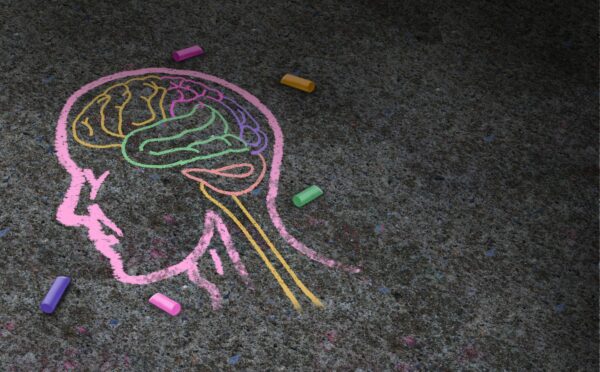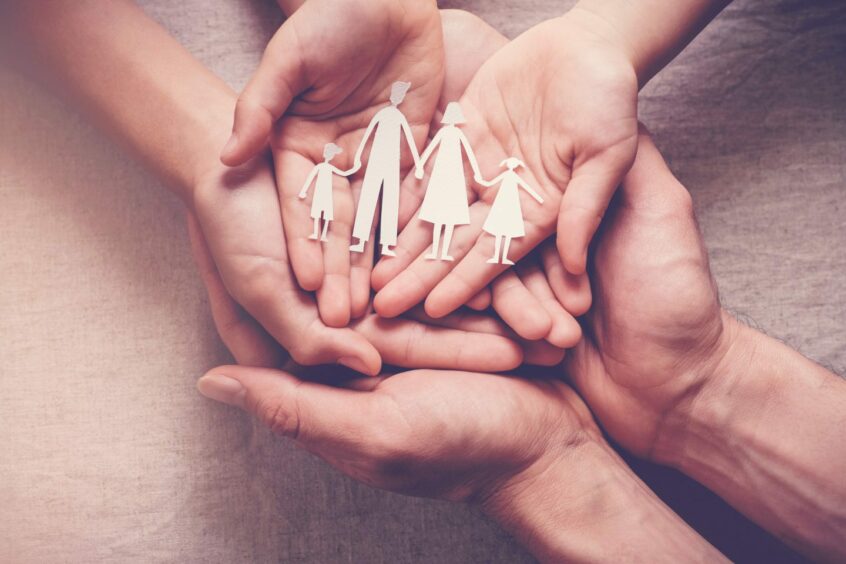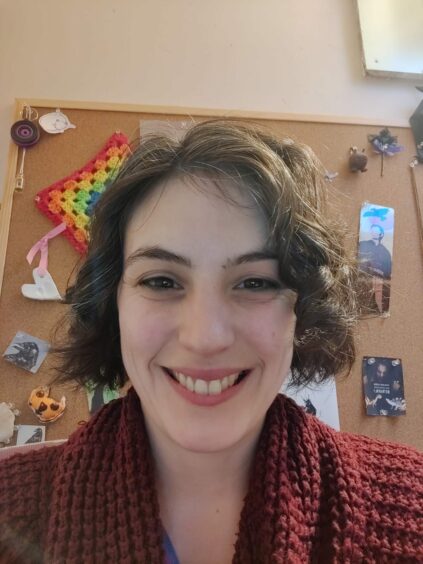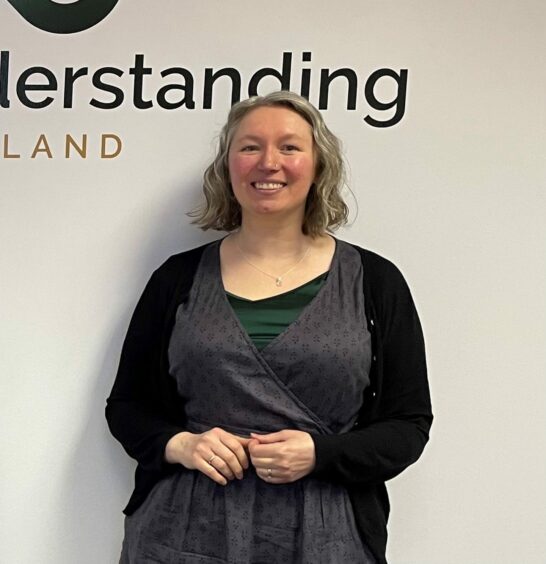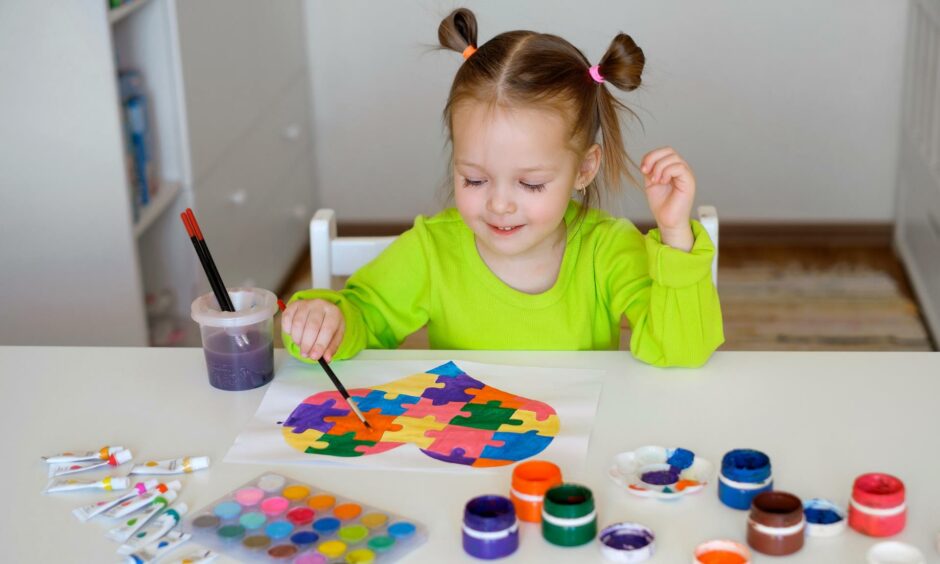Marion McLaughlin and Felicity Goodhall have a deep understanding of one another.
Marion explains that they have taken a picture of artwork featuring ravens, and Felicity cannot disguise her delight.
She has already spent years hiding, or rather masking, without even realising.
There was the time she forced her hand down into her lap, a physical rejection of the natural way in which she expresses joy.
It is not the fact that the pair work together or even that they both have children – although these elements of course contribute towards their affinity.
Both Marion and Felicity have been diagnosed autistic in recent years, and they are determined to set the narrative straight.
They are slowly spreading their word, after former teacher Marion launched an incredible organisation called Autism Understanding Scotland.
There is still a lack of awareness
The team works closely with both the Scottish Government, NHS Grampian, Police Scotland and other organisations including local authorities.
The initiative means one to one support is on offer for those living in Aberdeen, the Shire and Shetland, but the team also covers the whole of Scotland.
There may be a greater understanding of neurodivergence, but for many adults who receive a diagnosis later in life – contact with the organisation is the first time that autism has been framed as a positive.
For Felicity and Marion, who identifies as they, there is still a lack of awareness as to who society may consider to be autistic.
Caitlyn Scott-Lee was just 16 when she took her own life, and media coverage has focused both on the fees of the boarding school she attended, followed by the fact she was also autistic.
Do we associate young girls from a wealthy background, with a diagnosis of autism in the first place?
Both Felicity and Marion believe harmful misconceptions go beyond gender, and it’s high time that narrative surrounding autism is ripped up and rewritten.
Felicity Goodhall, Senior Autism Practitioner
Felicity, who lives just outside Ellon in Aberdeenshire, believed she had a good understanding of autism
Her role sees her work with autistic people and their families, and she’s also involved in initiatives such as autistic lunch club – which offers a relaxed space over zoom for autistic people to socialise in a way that is natural to them.
But despite going through the diagnosis of family members and writing a blog on autism, she did not recognise traits within herself.
“It was my parents and husband who sat me down, I had not realised I was autistic,” said Felicity.
“We were living down south at the time and I was denied an autism assessment, I was told there was no such thing.”
Felicity was misdiagnosed with depression when she was in fact facing autistic burnout.
The mental and physical fatigue can be caused by living in a society which is not best adapted to sensory needs.
“It’s not just women who mask, it can really be anyone who doesn’t fit that very narrow stereotype of who society expects to be autistic,” said Felicity.
“Girls are expected to be quiet and sit still, I masked to a very high level.”
Support needed before and after diagnosis
Felicity believes that autism can also be misdiagnosed as anxiety, and people who are autistic can be more likely to have an eating disorder
“The reasons for that are really misleading, it’s not about weight,” said Felicity.
“There can be sensory issues at play, or it can be about control.
“I struggle with tags in clothing for example, and there’s a narrow range of what I can eat.
“But that does not mean autism is a negative, and there should be support throughout the entire process, both prior and after diagnosis.
“We’re here saying ok, you might be autistic.
“And it’s OK if you are.”
Marion McLaughlin, CEO of Autism Understanding Scotland
Marion previously founded Autistic Pride Aberdeen, and was diagnosed autistic in 2018.
They believe that misconception surrounding autism means people can be misdiagnosed.
“I remember when I was doing my teacher training, and there was this belief that boys could be autistic but only a tiny % of girls,” they said.
“Historically, research always focused on white, middle class cis boys.
“If that is all you’re looking for, you miss out a whole bunch of people including non binary and trans individuals.
“It can be any person of any age, gender, ethnicity and any social economic background.”
Gender constructs certainly contribute to women not being seen as autistic, but Marion believes the subject is more complicated.
‘Being autistic does not mean you are doomed’
“If we consider gender as a social construct, trans people are three to six times more likely to identify as autistic,” they said.
“The life expectancy of someone who is autistic is between 39 and 54 years old with suicide one of the highest causes of death.
“This is because so often, autistic people are not getting their needs met, they are more vulnerable to abuse and can become isolated.
“There are lots of reasons, our presentation of pain can even be different and doctors do not really understand the interceptive differences.
“We need an affirming approach and post diagnostic support.
“We shouldn’t be focusing on where people haven’t met societal expectations in that diagnostic process, why they are struggling or different.
“How about where you are exceeding expectations?
“We want people to understand that being autistic does not mean you are doomed.
“We want to create a world where it’s not just about surviving, but actually thriving.”
- Samaritans are available to offer support day or night, 365 days a year. You can call on 116 123, email jo@samaritans.org or visit samaritans.org
